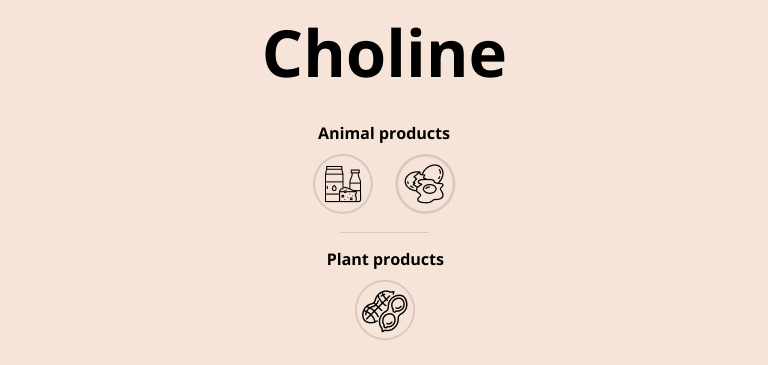Choline
Year of discovery: 1862 | Adolph Strecker
Choline is not really a vitamin, but an essential component of food, which is often classified as a B vitamin. The body produces choline on its own, but the absorption of choline from the diet is necessary to meet the body's need for this nutrient. Choline also acts as a methyl donor. Choline has several functions, for example, it metabolizes fats and cholesterol, participates in the construction of cells and ensures their integrity, participates in the transmission of cell signals, and is involved in neurotransmission and gene expression. In pregnancy, choline is crucial for brain development in the developing fetus.
Main sources of choline
Choline can be found in many foods, mainly milk, eggs and peanuts. It is also included in lecithin, which is used as an emulsifier in food processing.
Bioavailability of choline
Information on the bioavailability of choline is lacking.
Risks associated with insufficient or excessive choline intake
A varied diet should provide sufficient choline in most people, but vegetarians (who do not consume milk or eggs) may be at risk of insufficient choline intake. Insufficient choline intake can lead to liver dysfunction and muscle damage. Choline is particularly important during pregnancy because it is involved in brain development in the fetus. There is some data suggesting that maternal choline levels may be associated with neural tube defects. Choline biosynthesis declines in menopausal women. In recent studies, low blood choline levels have been linked to an increased risk of stunted growth (low height) in Malawian children. Choline and folic acid interact at the level where homocysteine is converted to methionine. If the metabolism of one of the methyl donors is disrupted, it will disrupt the metabolism of choline. Excessive intake of choline is rare, but can cause a fishy body odor, vomiting, drooling, hypotension and liver toxicity.



